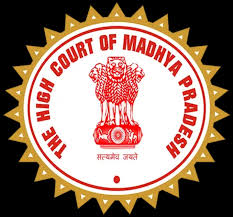S. N. Srivastava, J.@mdashImpugned herein is the order dated 18.4.2001 (Annexure-5 to the petition) thereby terminating the services of the petitioner.
2. It would transpire from the perusal of the record that petitioner''s husband who had been in the service of Nagar Panchayat, Nadi Gaon, district Jalaun, for the last 10 years was spirited away by death on 4th March, 1996 and as a sequel to his death, petitioner, widow of the deceased, applied for appointment and she was offered appointment under Dying-in-harness Rules by means of appointment letter dated 1st April, 1996. The petitioner claims to have been discharging her duties as sweeper ever since then and to the entire satisfaction of the authorities. It would further appear from the record that she was served with a notice dated 5.4.2001, issued under the signature of Adhyaksh, Nagar Panchayat thereby enjoining her to submit her reply within one -week failing which her services would be terminated. The charges embodied in the aforestated notice were that she was not performing the work of sweeping and cleaning properly in the area assigned to her ; that complaints were pouring in relating to the work of sweeping and cleaning in the area assigned to her ; that the area assigned to her was inspected by the authority concerned and she was found absenting herself from the area and finally that she has been found whiling away her time during the period assigned to her for cleaning and sweeping of the area. It would appear that by means of the impugned order, appointment of the petitioner was cancelled and the services of the petitioner have been terminated and it is this order which has been the causative factor for instituting the present petition.
3. Heard learned counsel for the parties. Sri K. C. Srivastava, appearing for the petitioner canvassed that the services of the petitioner have been dispensed with on grounds torn out of context of the notice issued to the petitioner and further that before passing the impugned order, she was not afforded any opportunity of hearing. He further submitted that since the impugned order is not attributed to be the outcome of the charges, the notice served to the petitioner cannot, by any stretch of imagination, be given the veneer of a valid notice and by this reckoning, the impugned order should be taken to have been passed without any valid notice. He further canvassed that since the order was founded on certain allegations, no opportunity was afforded to her to meet and repudiate those allegations and as such the impugned order was rendered vitiated and was liable to be quashed. It was further submitted that the order was passed without any resolution and without approval of the State. Sri H. N. Tripathi, learned counsel appearing for the opposite parties tried to draw a subtle distinction between the two orders one rescinding the appointment and the other terminating her services and contended in opposition that the appointment order was passed by the Executive Officer and the competent authority has passed order rescinding the appointment. He further contended that the petitioner was served with notice before passing the impugned order.
4. I have scanned the entire record to search for the basis of the impugned order qua the impugned notice (Annexure-4 to the petition) and it is explicitly clear that the impugned order is not founded on the allegations made in the show cause notice. The necessary consequence flowing from the above appears to be that allegations as contained in the notice/charge-sheet were not substantiated and the opposite party No. 1 appears to have passed the impugned order on grounds not mentioned in the show cause notice. By the above reckoning, the argument of the learned counsel for the petitioner that the impugned order was passed on allegations other than those mentioned in the notice and that the petitioner has been visited with the cancellation of the appointment/ termination order due to extraneous considerations by the competent authority, and without giving any opportunity of hearing, carries substance. Besides the learned counsel for the respondents has not drawn attention of the Court to any resolution of the Nagar Panchayat furnishing foundation for order of cancellation of appointment/ termination. The principles of natural justice enjoin that a person cannot be punished without any opportunity of hearing for the allegations made against him and in the instant case, no notice was served to the petitioner delineating any of the grounds mentioned in the impugned order and by this reckoning, the order impugned militates against the principles of natural justice and is thus vitiated.
5. Coming to grips with the second limb of argument, from a bare perusal of the impugned order, it is obvious that the order has been passed on the solitary ground that the husband of the petitioner was a temporary employee and as such, her appointment under Dying-in-harness Rules was not valid one. As stated supra, before the husband of the petitioner had died, he had already put in 10 years of service. In this context, what is discernible from a bare perusal of the Dying-in-harness Rules is that if a person who has put in more than three years of service even if in temporary capacity, dies in harness, it furnishes grounds for the heirs/ dependants to seek compassionate appointment. The premises forming basis of the impugned order for cancellation of the appointment of the petitioner is that the husband of the petitioner being in temporary employment of the Nagar Panchayat appointment of the petitioner lacked in validity ab initio. The submission that the authorities having failed to pin her down on the allegations contained in the show cause notice decocted the device of finding infirmity in the appointment of the petitioner appears to have substance. The impugned order being based on allegations other than the allegations contained in the notice, is vitiated in law. The impugned order cannot be vindicated by allegations invented subsequently by fresh reasons and grounds as unfolded in the counter-affidavit as reasons disclosed, in the impugned order are the very indicia of the form of an order. The view I am taking, receives reinforcement from the observations made by the Apex Court in
6. As a result of foregoing discussion, I am of the firm view that the impugned order passed by the Chairman, Nagar Panchayat Nadi Gaon, district Jalaun, cannot be sustained and is liable to be quashed.
7. In the result, the petition succeeds and is allowed and the impugned order contained in Anhexure-5 to the petition thereby rescinding appointment of the petitioner attended with the order terminating her services is quashed accordingly. As a necessary consequence of the above, the petitioner is held to be entitled to get salary on month to month basis along with all consequential benefits flowing from quashing of the impugned order.

